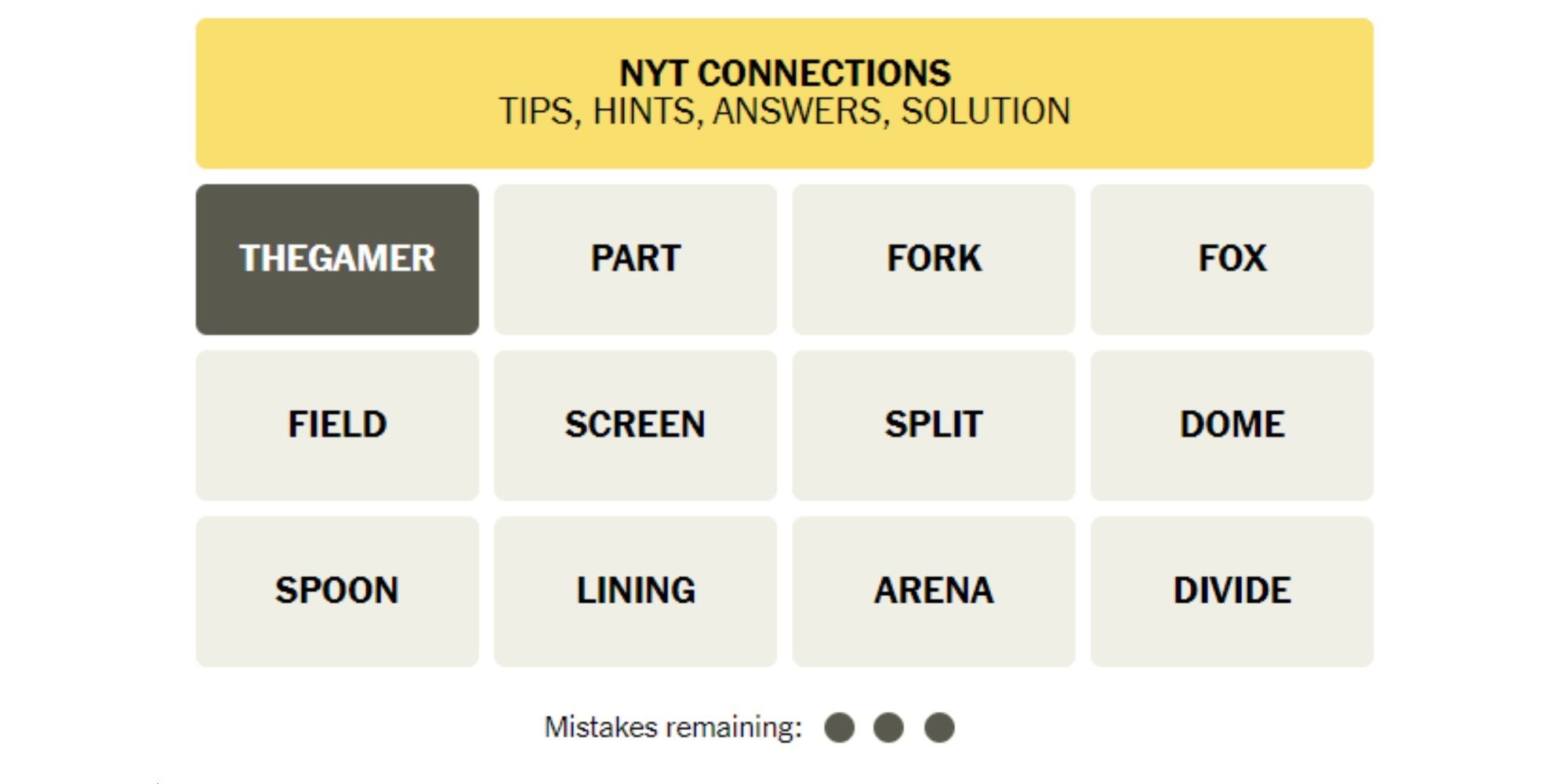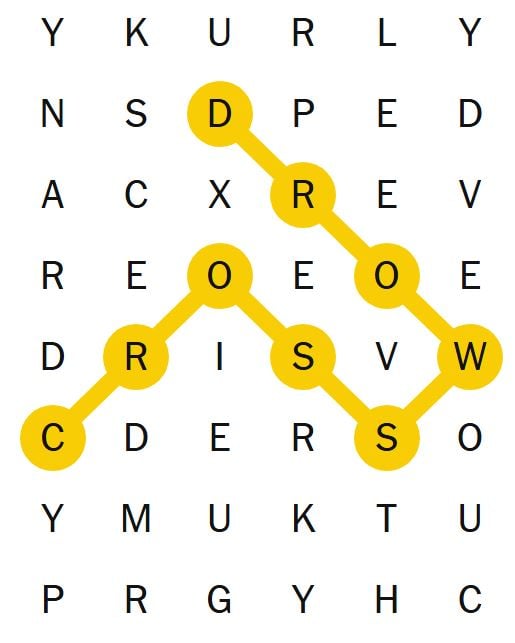The Power Of Criticism: Michael Jordan's Belief In Denny Hamlin

Table of Contents
H2: Michael Jordan's Ruthless Pursuit of Excellence and the Role of Criticism
Michael Jordan's legendary intensity wasn't just about scoring points; it was about pushing himself and his teammates to the absolute limit. His approach, often described as "brutal honesty," involved delivering harsh but ultimately productive criticism.
H3: The "Brutal Honesty" Approach
- Examples: Stories abound of Jordan's intense criticisms. He famously challenged Scottie Pippen's defensive intensity, pushing him to become one of the league's best defenders. His criticism wasn't personal; it was targeted at improving performance. He pushed his teammates to exceed their perceived limitations, believing that only through relentless pressure could true greatness be achieved.
- Impact: While initially jarring, Jordan's criticism often yielded remarkable results. Teammates, though initially intimidated, responded by elevating their games, ultimately contributing to the Chicago Bulls' dynasty. This "constructive feedback," though delivered harshly, served as a crucial catalyst for their success.
- Keyword Integration: Michael Jordan's criticism, constructive feedback, high-performance, winning mentality
H3: Learning from Mistakes Through Criticism
Jordan understood that failure wasn't the opposite of success; it was a stepping stone. He viewed setbacks as opportunities for growth, fueled by rigorous self-criticism and the feedback of his coaches and teammates.
- Examples: His missed shots, turnovers, and even championship losses weren't seen as personal failures, but as data points for improvement. He meticulously analyzed his performance, identified weaknesses, and worked tirelessly to rectify them. He welcomed criticism as a tool for identifying these areas.
- Impact: This relentless self-analysis and acceptance of constructive criticism allowed Jordan to adapt his game constantly, evolving into an even more dominant force. This "growth mindset," fueled by criticism, is a key component of his legendary success.
- Keyword Integration: self-criticism, adaptability, failure as a learning opportunity, growth mindset
H2: Denny Hamlin's Resilience and Acceptance of Criticism
Denny Hamlin, a prominent figure in NASCAR, operates in a similarly high-pressure environment, constantly facing intense scrutiny from fans, media, and even within his own team. His career demonstrates a remarkable resilience in the face of constant criticism.
H3: Navigating the Intense World of NASCAR
- Examples: Hamlin has faced criticism for aggressive driving, strategic decisions, and even his post-race interviews. The NASCAR world is unforgiving; any mistake is magnified under the intense media spotlight. Yet, Hamlin perseveres.
- Impact: Hamlin’s consistent performance in the face of this criticism shows his ability to filter out noise and focus on improvement. He uses feedback, both positive and negative, to refine his skills and strategic approach.
- Keyword Integration: Denny Hamlin, NASCAR criticism, pressure performance, race car driver
H3: The Parallel to Jordan's Mentality
While their sports differ vastly, the parallels between Hamlin and Jordan's approaches to criticism are striking. Both possess an unwavering dedication to improvement, a strong sense of self-belief, and the ability to learn from setbacks.
- Comparisons: Both are known for their intense focus and competitive spirit. Both use criticism as a tool for growth rather than allowing it to derail their focus. They demonstrate remarkable mental fortitude and emotional intelligence in handling criticism.
- Impact: This shared mentality—embracing criticism as a tool for self-improvement—is a key ingredient in their respective successes. Their resilience stems directly from their ability to convert criticism into fuel for improvement.
- Keyword Integration: Jordan's influence, mental fortitude, professional athlete, success strategies
H2: The Power of Constructive Criticism in High-Stakes Environments
The experiences of Jordan and Hamlin powerfully illustrate the importance of constructive criticism in high-stakes environments. It’s not about avoiding criticism; it's about learning how to use it effectively.
H3: The Importance of Feedback for Growth
- Effective vs. Destructive Criticism: Constructive criticism is specific, actionable, and focused on behavior, not personality. It provides clear guidance on how to improve, whereas destructive criticism is often vague, personal, and demotivating.
- Impact: Constructive feedback provides valuable insights into performance gaps, enabling individuals to target specific areas for improvement and achieve better outcomes.
- Keyword Integration: constructive criticism examples, feedback mechanisms, performance improvement, professional development
H3: Building Resilience Through Criticism
Embracing criticism is a powerful way to build mental resilience and psychological strength. It equips individuals to navigate adversity and bounce back from setbacks.
- Psychological Benefits: Accepting criticism enhances self-awareness, fosters a growth mindset, and helps build emotional intelligence. It helps develop coping mechanisms for handling stress and pressure.
- Impact: By viewing criticism as an opportunity for growth, individuals develop a stronger sense of self and become more resilient in the face of future challenges.
- Keyword Integration: mental resilience, psychological strength, emotional intelligence, stress management
3. Conclusion
Michael Jordan and Denny Hamlin, despite their vastly different sporting backgrounds, share a remarkable similarity: their unwavering acceptance of constructive criticism. This article has explored how this shared philosophy has fueled their exceptional success, demonstrating that embracing criticism is not a weakness, but a powerful tool for self-improvement and achieving peak performance. Both illustrate that the ability to learn from feedback, both self-imposed and externally provided, is essential in high-pressure, competitive environments.
Embrace the power of criticism and unlock your potential, just like Michael Jordan and Denny Hamlin! Learn to identify constructive criticism, and use it to improve your performance in any field. Don't shy away from feedback; use it to fuel your own journey to greatness.

Featured Posts
-
 Fishermans Stew A World Class Chefs Recipe Wins Over Eva Longoria
Apr 28, 2025
Fishermans Stew A World Class Chefs Recipe Wins Over Eva Longoria
Apr 28, 2025 -
 Could This Underrated Red Sox Player Have A Breakout Season
Apr 28, 2025
Could This Underrated Red Sox Player Have A Breakout Season
Apr 28, 2025 -
 Canadian Energy Companies Find Success In Southeast Asia
Apr 28, 2025
Canadian Energy Companies Find Success In Southeast Asia
Apr 28, 2025 -
 Nascar Jack Link 500 Props And Best Bets Talladega Superspeedway 2025 Predictions
Apr 28, 2025
Nascar Jack Link 500 Props And Best Bets Talladega Superspeedway 2025 Predictions
Apr 28, 2025 -
 Mets Rotation Battle A Shift In Momentum For One Starter
Apr 28, 2025
Mets Rotation Battle A Shift In Momentum For One Starter
Apr 28, 2025
Latest Posts
-
 Nyt Spelling Bee March 13 2025 Hints Clues And Answers
Apr 29, 2025
Nyt Spelling Bee March 13 2025 Hints Clues And Answers
Apr 29, 2025 -
 Solve The Nyt Spelling Bee March 13 2025 Answers And Pangram
Apr 29, 2025
Solve The Nyt Spelling Bee March 13 2025 Answers And Pangram
Apr 29, 2025 -
 Nyt Spelling Bee Answers For March 13 2025
Apr 29, 2025
Nyt Spelling Bee Answers For March 13 2025
Apr 29, 2025 -
 Oh What A Beautiful World A Review Of Willie Nelsons New Album
Apr 29, 2025
Oh What A Beautiful World A Review Of Willie Nelsons New Album
Apr 29, 2025 -
 Country Legend Willie Nelson Releases Oh What A Beautiful World
Apr 29, 2025
Country Legend Willie Nelson Releases Oh What A Beautiful World
Apr 29, 2025
